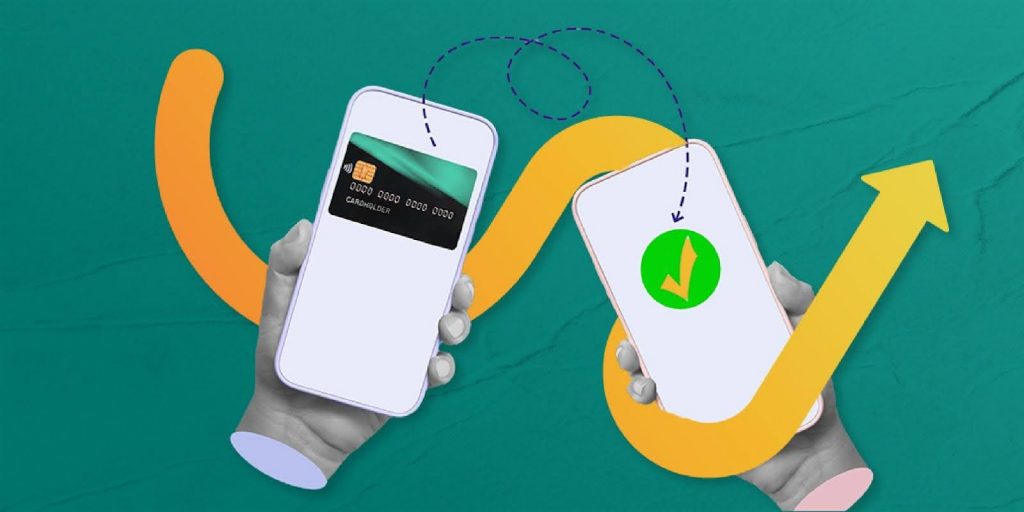
Domestic Money Transfer: A Comprehensive Guide
With the help of the Domestic Money Transfer service, you may electronically transfer funds to any bank account. You can move money between accounts that are owned by different financial institutions or by the same bank. Even if you don’t have a bank account, you may choose a DMT.
These transfer services may be carried out online since they are supported by computer systems and need minimal human involvement. These online funds transactions are dependable, secure, and instantaneous.
What is Domestic Money Transfer?

Domestic money transfer services make sending money to any domestic bank account easy for many consumers. These services can be used by those without bank accounts using mobile wallets, remittance services, or cash transfer locations. The recipient’s information, amount, and payment method are usually entered throughout the transfer procedure. Many firms offer rapid transfers, letting receivers get payments quickly.
Domestic money transfer platforms often include monitoring in addition to encryption and verification. This ensures transparency by letting senders and receivers track the transfer in real-time. Some cross-border transfer services provide low costs and favorable exchange rates, making them cost-effective for people and enterprises. Any transfer concerns or inquiries can be addressed by customer support. Domestic money transfers are safe, dependable, and more user-friendly, serving a wide spectrum of consumers.
Importance of Domestic Money Transfer?

Domestic money transfer is an essential service that allows you to send money to your loved ones across the country quickly and efficiently. Understanding the domestic money transfer meaning is crucial, as it encloses various methods of transferring funds within a nation without the need for international banking processes. This service is particularly valuable when you need to support family and friends or settle payments rapidly.
One of the main features of domestic money transfer is its speed. Typically, these transfers settle within a single day, ensuring that you don’t have to wait for days to access your funds. Whether you’re using a domestic bank transfer or a digital payment platform, the process is designed to be seamless. You can send money in just a few clicks, click, send, relax! This convenience makes domestic payment meaning more accessible, allowing users to navigate the system effortlessly.
Moreover, the growing availability of various platforms means that you can choose the service that best fits your needs. Many domestic money transfer services offer user-friendly interfaces, low fees, and enhanced security measures, making them reliable options for anyone looking to send money.
Whether you need to support a loved one during an emergency, pay for services, or simply send a gift, domestic money transfer provides a practical solution. With its quick settlement times and user-friendly features, you can feel confident in your ability to manage funds effectively and securely within your country.
How Much Does a Domestic Money Transfer Cost?
Sending money to your beloved sharing the same country is easy. With domestic money transfer, you can instantly transfer your funds – but what is the cost?
The fees for transferring money depend on many factors. The following are the most common kinds of fees you may come across while sending money:
- Outgoing and Incoming Fees
This type of fee depends on the bank you are using. There are several banks that charge separately.
Normally, outgoing wire transfer fees vary from $15-40 for domestic transfers. Meanwhile, incoming wire transfers range from $0 to $20.
To get an estimate for your transfer cost, you can reach out to your bank or transfer services.
- Intermediary Transfer Fees
There are some domestic money transfers that involve a third-party bank. This bank handles the money transfers between financial institutions.
This bank may charge a certain fee other than outgoing or incoming fees.
- Exchange Rates
Well, exchange rates are not a fee. Yet, this is a considerable money transfer cost. Ensure that you consider exchange rates to know what you are sending or how much you are going to receive.
- Extra Transfer Fees
There are several extra fees linked with domestic money transfers. This includes cancellation fees, bank fees, in-person transfer fees, etc.
Methods for Domestic Money Transfer

To ensure you transfer your money rapidly, it’s important to explore suitable options for domestic money transfer. Remember to look closely at all the specifics to choose the best method for your needs.
1- Bank Transfers
Bank transfers are the most traditional way of sending money within the country. With domestic bank transfer, you can easily send money to someone else’s account with just a click. These transfers are safe, reliable, and secure. However, it’s worth noting that they may not be the fastest option available. So choose wisely!
2- Mobile Wallets
Mobile wallets are becoming increasingly popular worldwide for domestic money transfer. These apps allow you to transfer money quickly and conveniently. Additionally, they help you pay your bills, check your balance, and view transaction histories, making them a flexible choice for managing your finances.
3- Online Platforms
Online platforms have revolutionized the way people conduct domestic payment transactions. You can use these platforms to make transfers quickly and easily, often requiring just a unique ID. Many of these platforms feature real-time processing and adaptable functionalities, simplifying the domestic money transfer process.
By considering these options bank transfers, mobile wallets, and online platforms you can find the best method for your domestic money transfer needs.
Benefits of Domestic Money Transfer

Domestic money transfer is the quickest way to get your hands on money. Here are a few benefits of using domestic transfers.
- With domestic money transfers, you no longer have to wait for cheques to get approved. Just tap on the screen and send or receive your funds.
- Domestic money transfer helps you in preventing fraud. Your money is electronically wired, and your record is traceable.
- Domestic transfer services allow you to send money with zero delays. With an automated system, you can send money in a few clicks.
- With domestic transfers, you can send money to your loved ones, send payments, pay your bills, etc.
What Is the Difference Between a Bank Transfer and a Domestic Transfer?

A bank transfer generally refers to a broader category of financial transactions, including both domestic transfers and international transfers. Essentially, a bank transfer involves the movement of money from one account to another, which can be processed within the same bank or between different banks. This flexibility makes bank transfers a widely used method for sending funds.
Domestic remittances, in contrast to international money transfers, focus on the movement of money within the same country. For example, sending money from the UK to Pakistan would be considered an international transfer, while sending money from one city to another within the UK falls under domestic transfer. While bank transfers can encompass both domestic and international transactions, the scope of domestic transfers is limited to a country’s borders.
If you want to send money within a state or country, domestic transfer is often the most convenient choice. It typically offers quicker processing times, often settling within the same day, and may incur lower fees compared to international transactions.
Key Features of Domestic Transfers
Speed: Domestic transfers are designed for quick settlements, allowing recipients to access funds almost immediately.
Accessibility: Most banks and financial institutions offer user-friendly options for domestic money transfer, making it easy for anyone to send money.
Security: Both bank transfers and domestic money transfer services implement strong security measures, ensuring that your funds are protected during the transaction.
Cost-Effectiveness: Domestic transfers generally involve lower fees than international money transfers, making them a budget-friendly option for everyday transactions.
Tips for Simplifying Domestic Money Transfers
Research and Compare
Each platform offering domestic money transfer services has different limits. Before you start using them, make sure that you choose a platform that aligns with your needs. Look out for their transfer limits. Is it what you are looking for?
Use Online and Mobile Banking
One of the easiest ways to transfer your funds domestically is to use online banking. Since these options are traditional, there are no ifs and buts. Your money with such credible institutions is safe and can go nowhere.
So, if you don’t have time to verify all the other platforms, online banking is the safest option.
Set Up Automatic Payments
Running a business? Or have some monthly payments aligned? You can set up your payments on automation, too. With domestic transfer services in the UK, it’s easier to make your payment hassle-free. Add, click, and pay! Make sure that you double-verify all the details to avoid any errors.
Keep Track Of Your Transactions
With several applications across the UK, you can view your transaction histories easily.
Lost track of whether you have made the payment or not? This is going to be of big help! Make sure that you are maintaining a record of your transaction IDs and receipts.
Use a Secure Network
Before you start sending money, make sure you’re using a secure platform for your transfer. Use authentication factors to include all possible security measures.
Conclusion
Over the years, domestic money transfers have evolved significantly, frequently improving to provide specialized features for various needs. It’s important to choose the right method for sending money, whether through a bank or a mobile wallet. These secure and convenient platforms allow you to send money, pay bills, and manage your finances effortlessly.
For those looking to send money internationally, consider TangoPay for easy transfers from one bank to another. With competitive rates and reliable service, TangoPay makes international money transfers easy and efficient. Start your journey with TangoPay today for hassle-free global transactions! Happy transfers!
Frequently Asked Questions
What does Domestic Money Transfer mean?
Domestic transfer is the process of sending money within the same country. This includes sending funds from a person, location, or account to someone close to you. It must be practised within the borders of a country.
How does domestic transfer work?
Domestic transfers are based on a few key steps. To initiate a transfer, provide the required information on the platform or service. This information should include the details of the payee and the amount. The amount is then deducted from your account and transferred to the recipient’s account. Easy!
How long does a domestic money transfer take?
The duration of domestic money transfer varies from platform to platform. Usually, this transfer can be completed in a few hours or instantly. Speed may be affected by several factors, such as banking hours and holidays.
What do I need for domestic transfer?
To send money within the country, you need all the recipient’s required details. This includes their name, account number, and bank information. Also, make sure your bank account has enough funds to cover the transfer amount. You may also need security information.
What do I need for domestic transfer?
International money transfers are a vital service for many people, allowing them to send money across borders quickly and securely. With TangoPay, you can enjoy a seamless and efficient process for your international money transfers.
TangoPay makes it incredibly easy and secure to send money internationally. Whether you’re using our mobile app or website, you can effortlessly initiate an international transfer with just a few clicks. TangoPay offers unbeatable exchange rates and low fees, ensuring you get the most value for your money.
